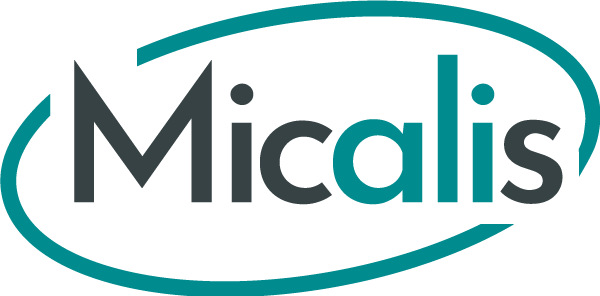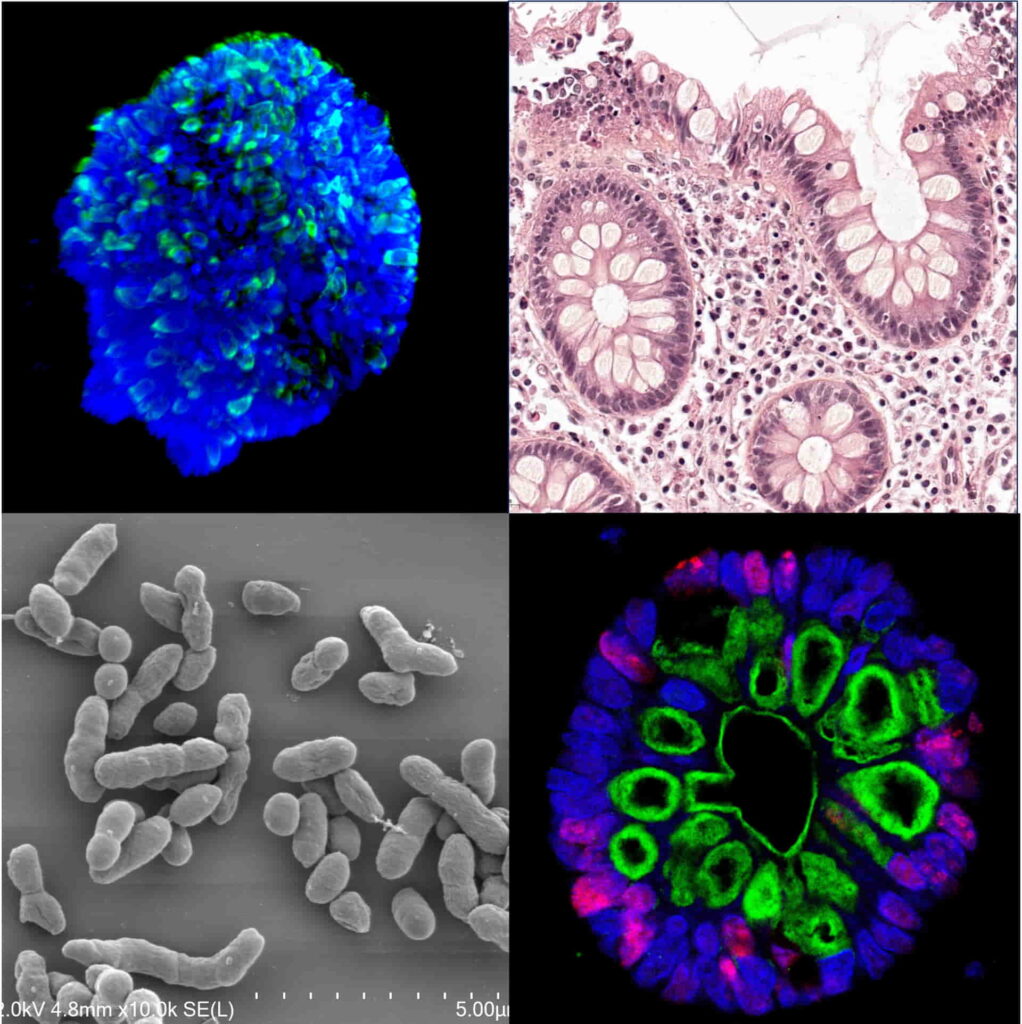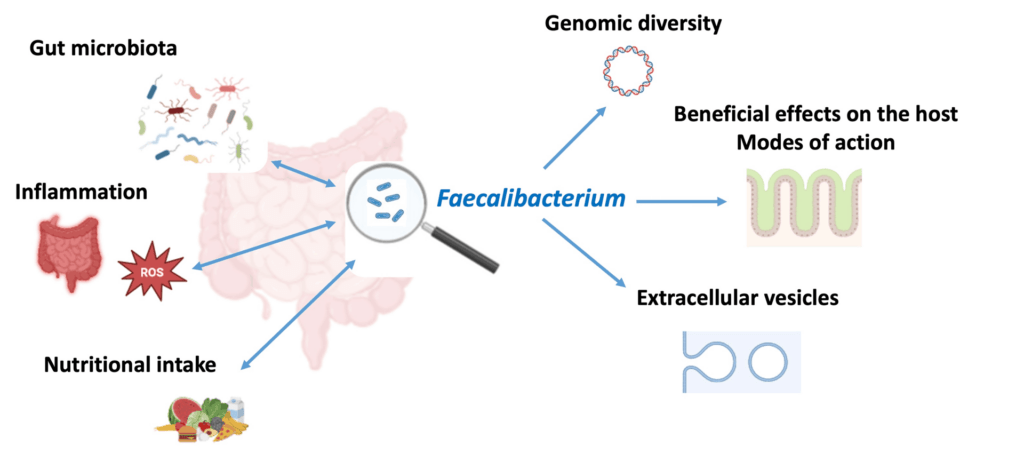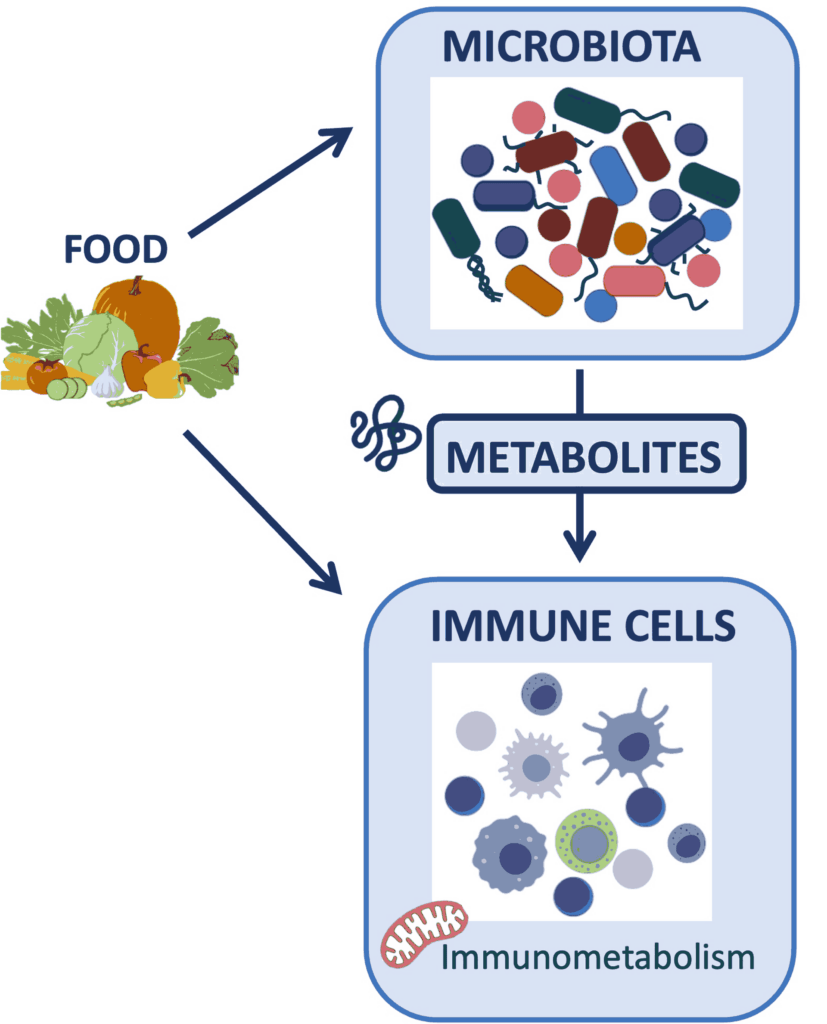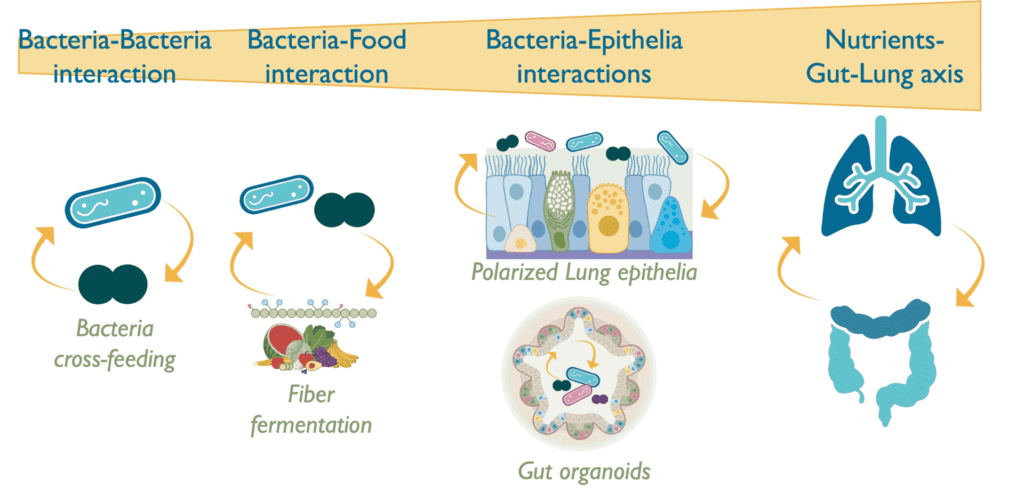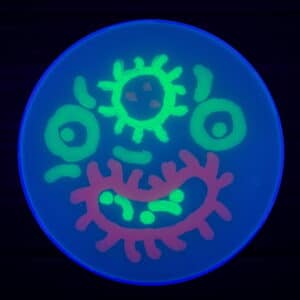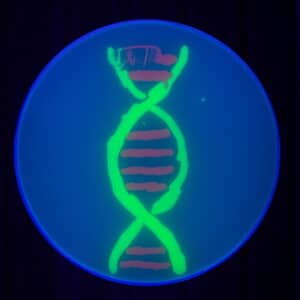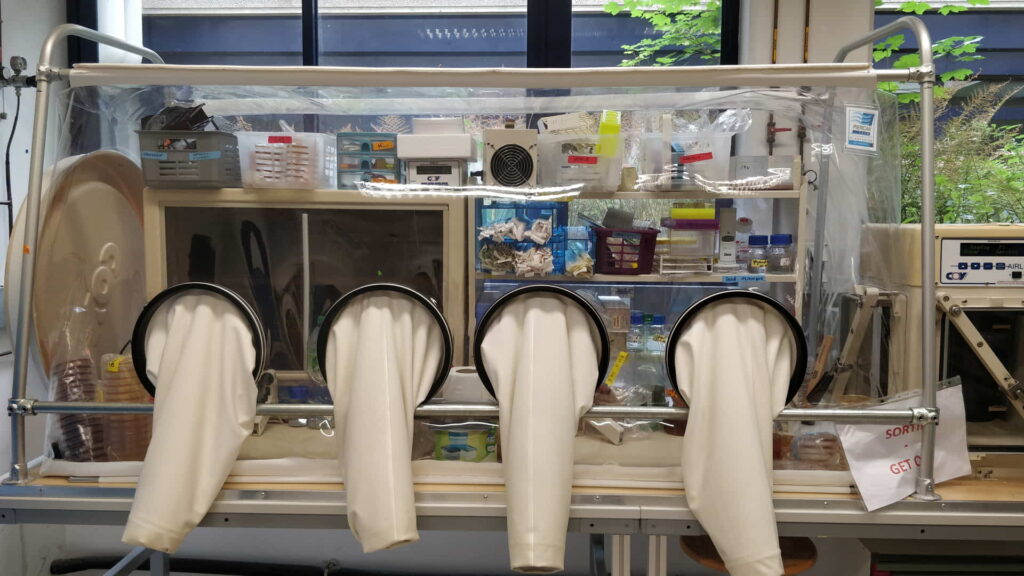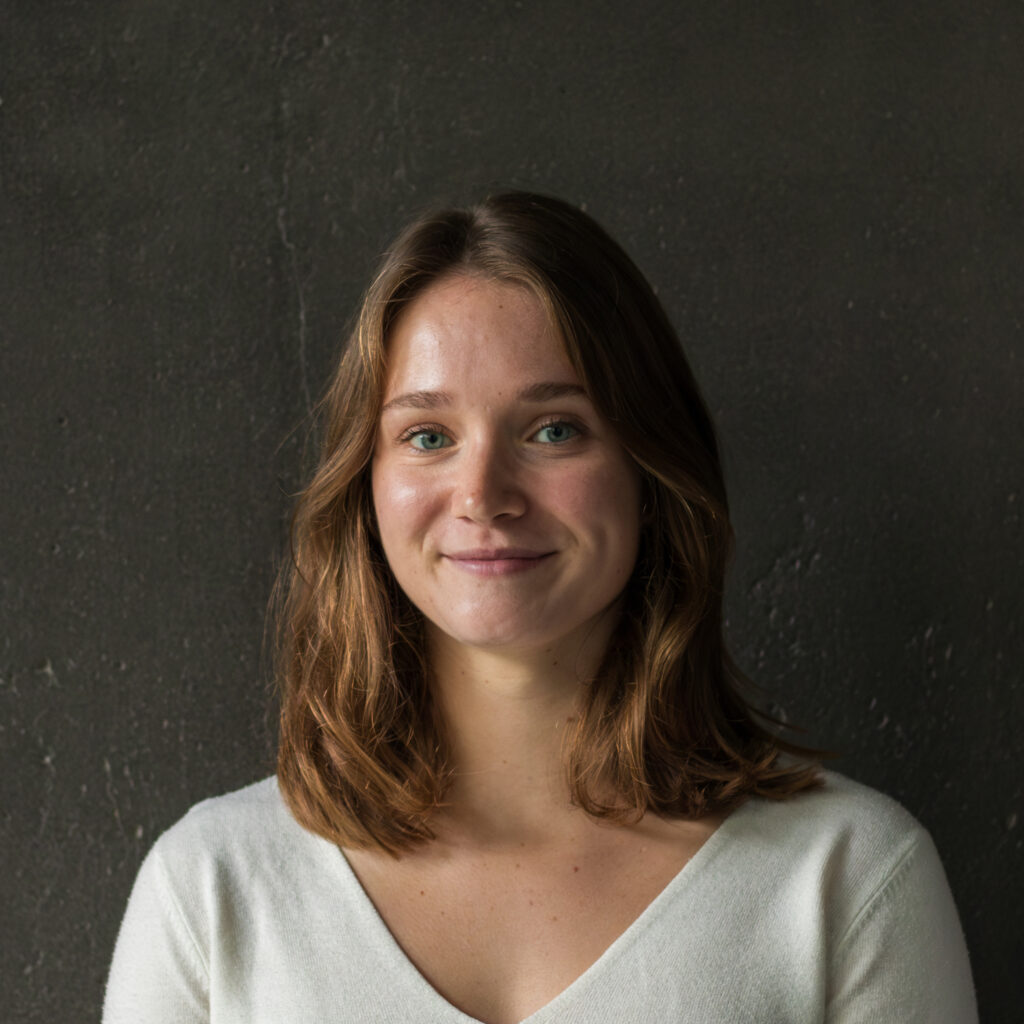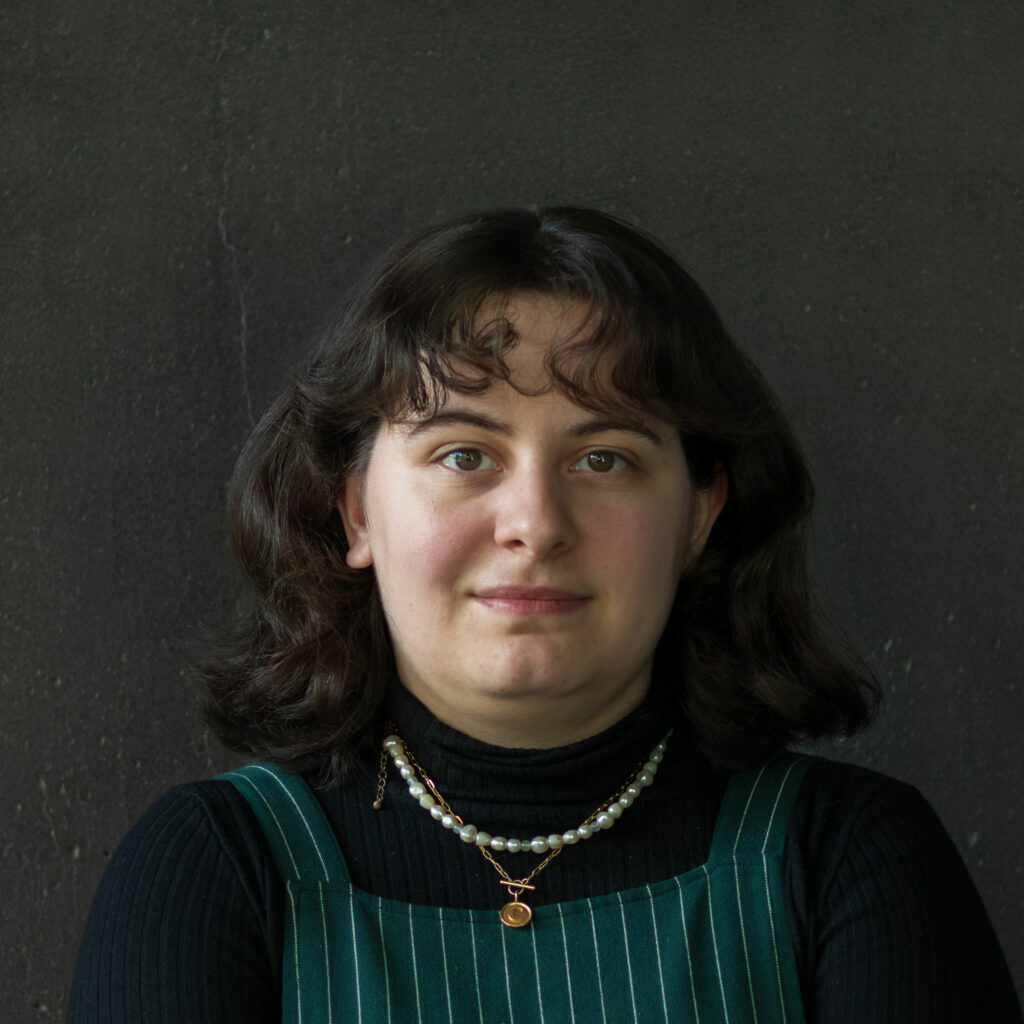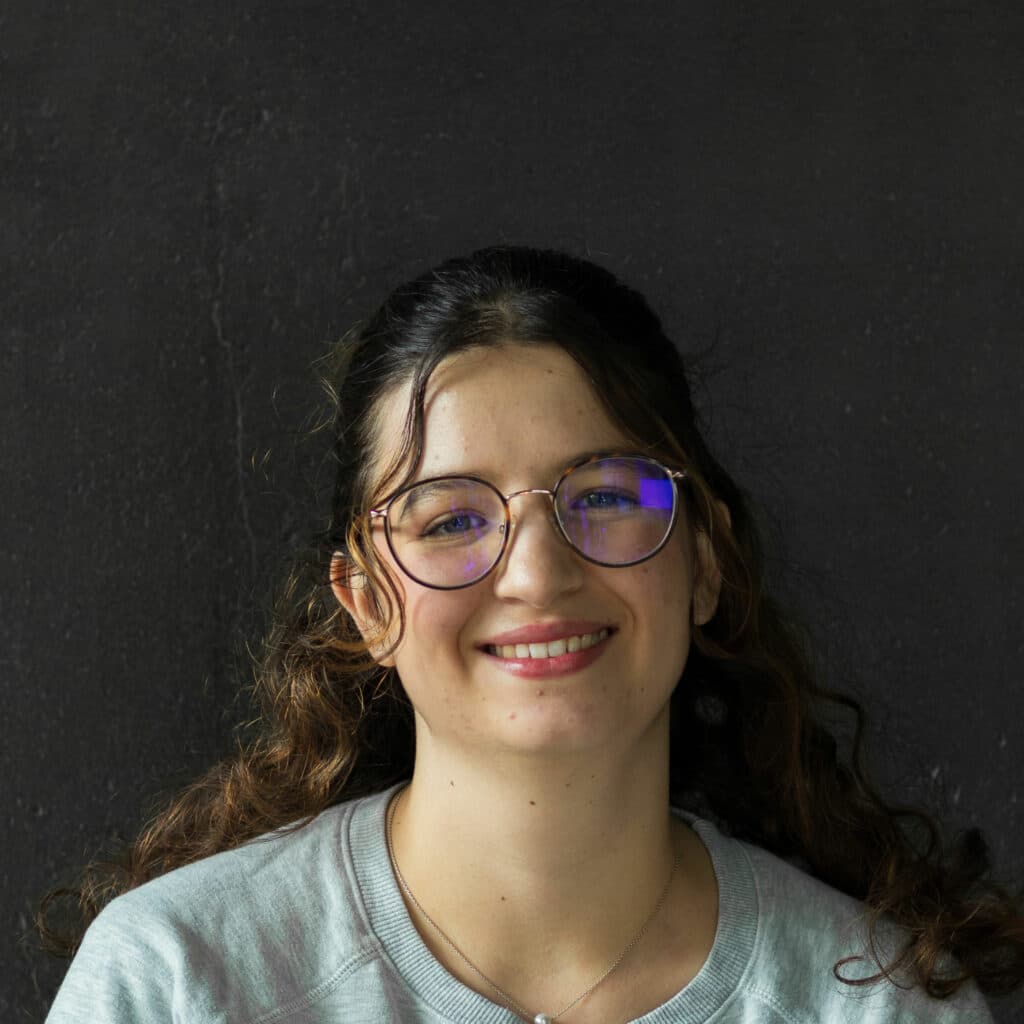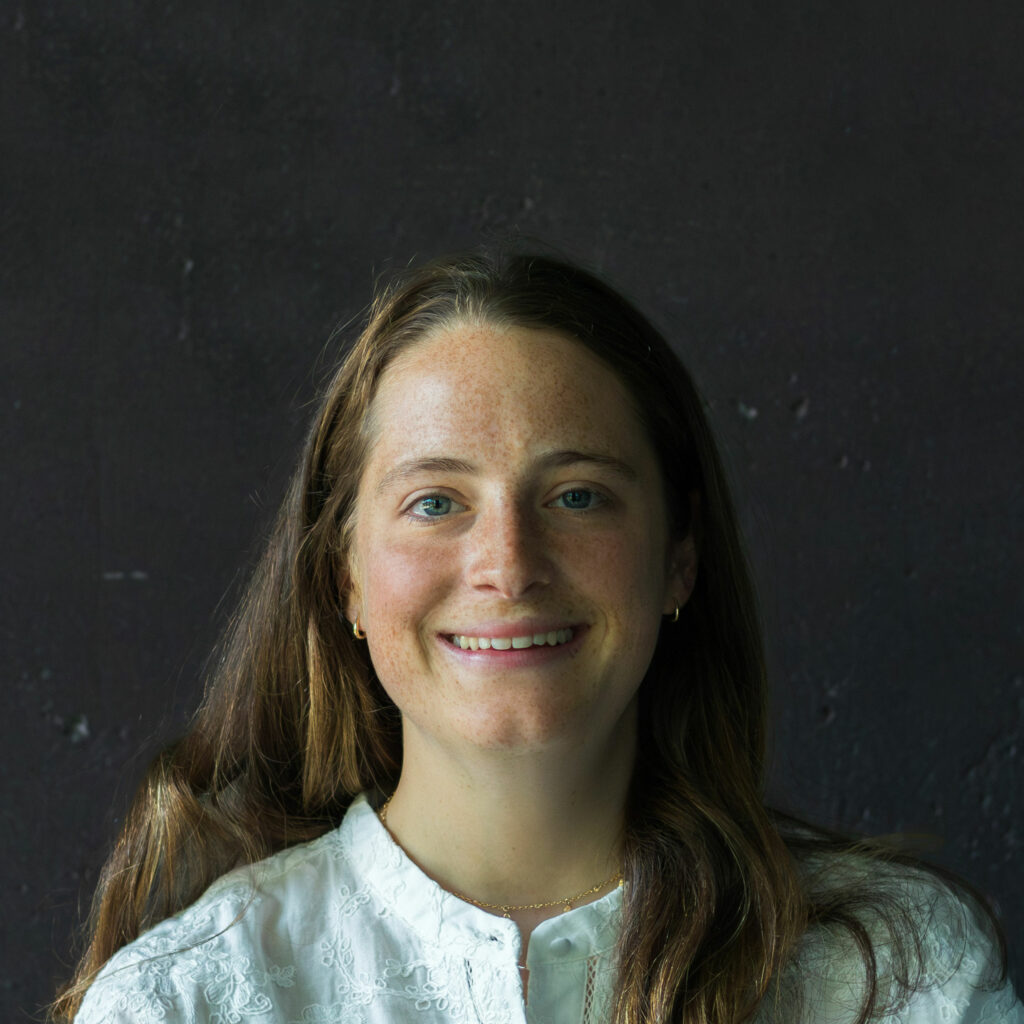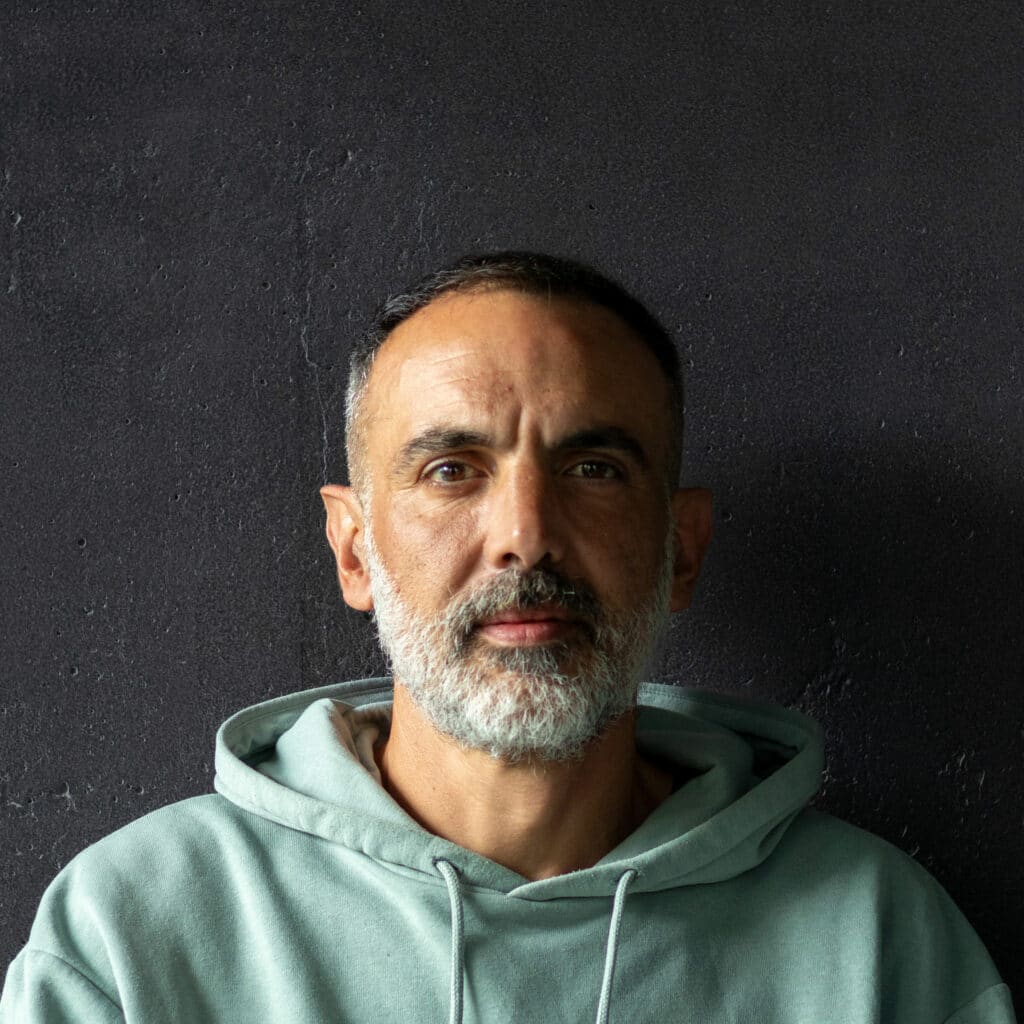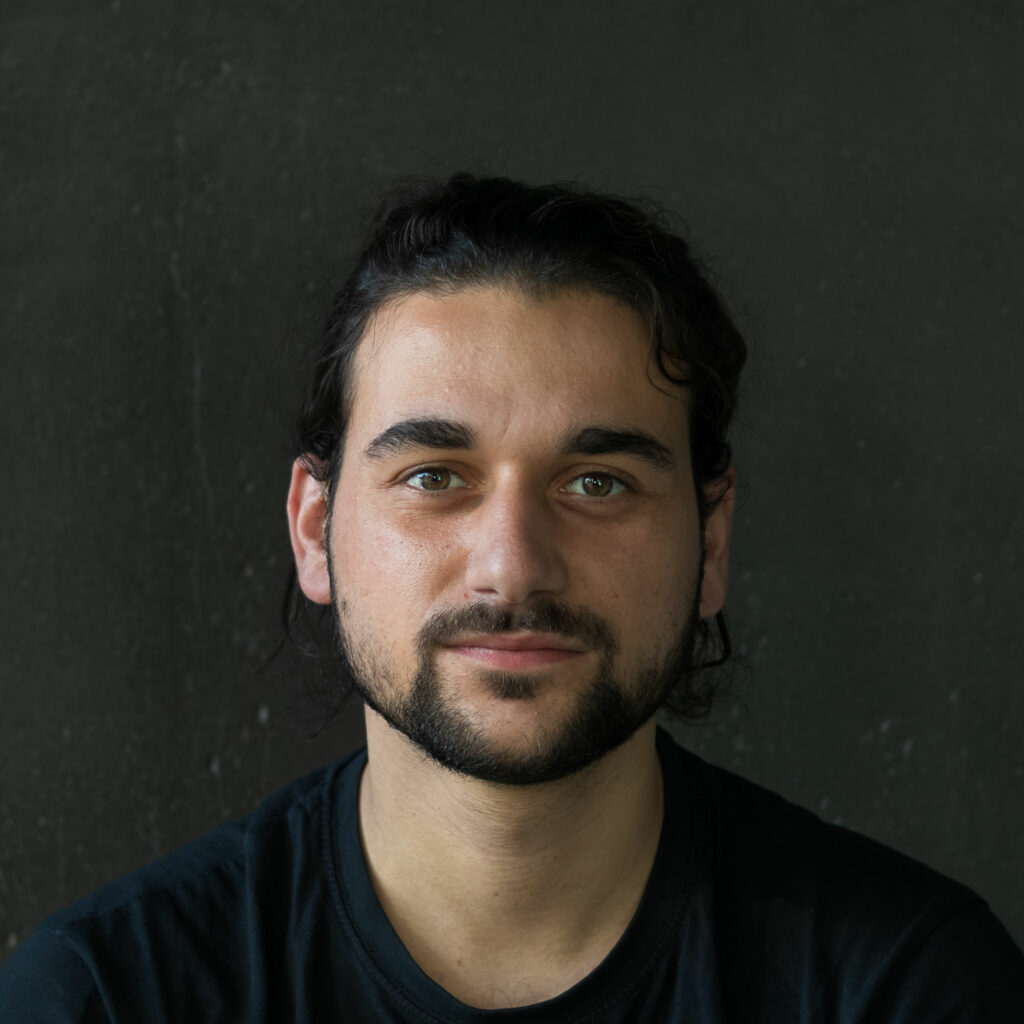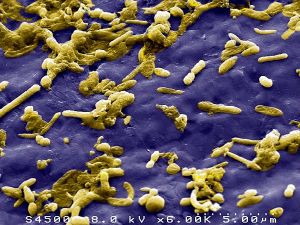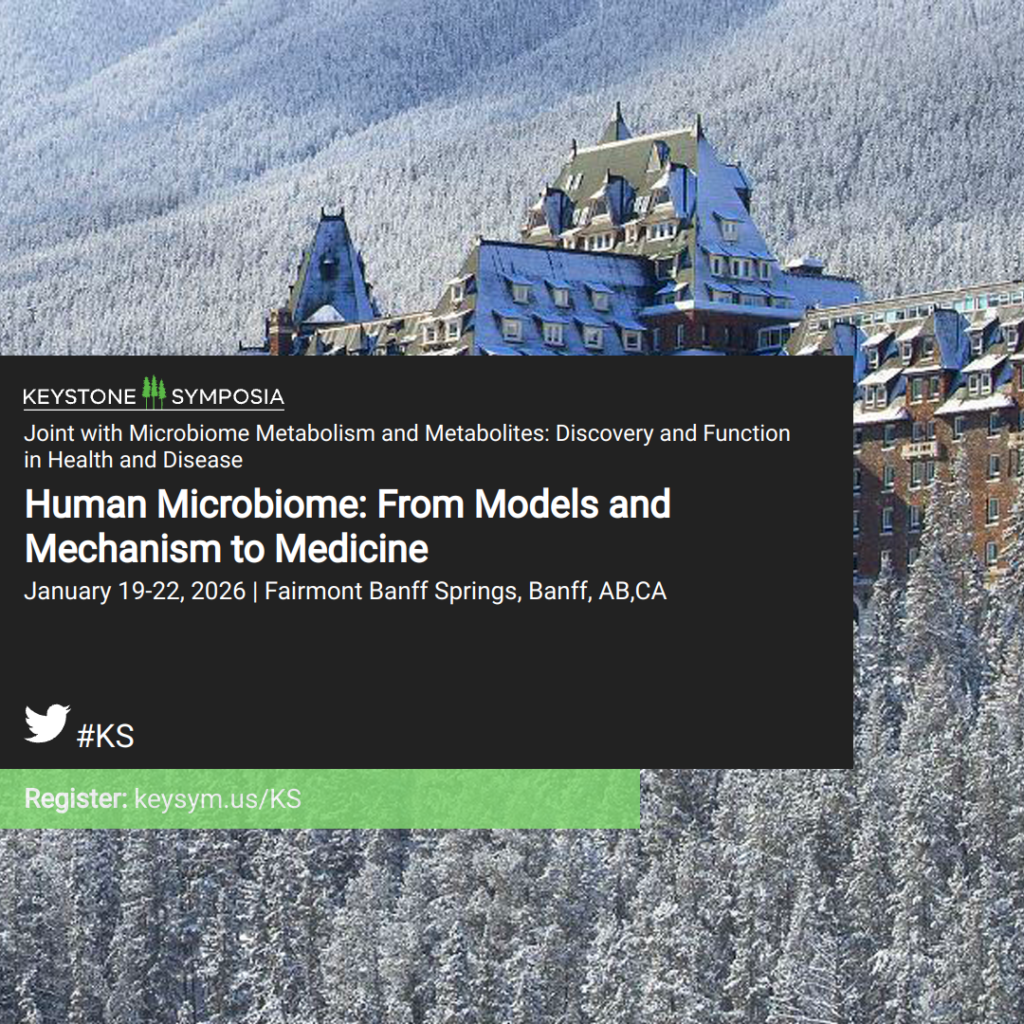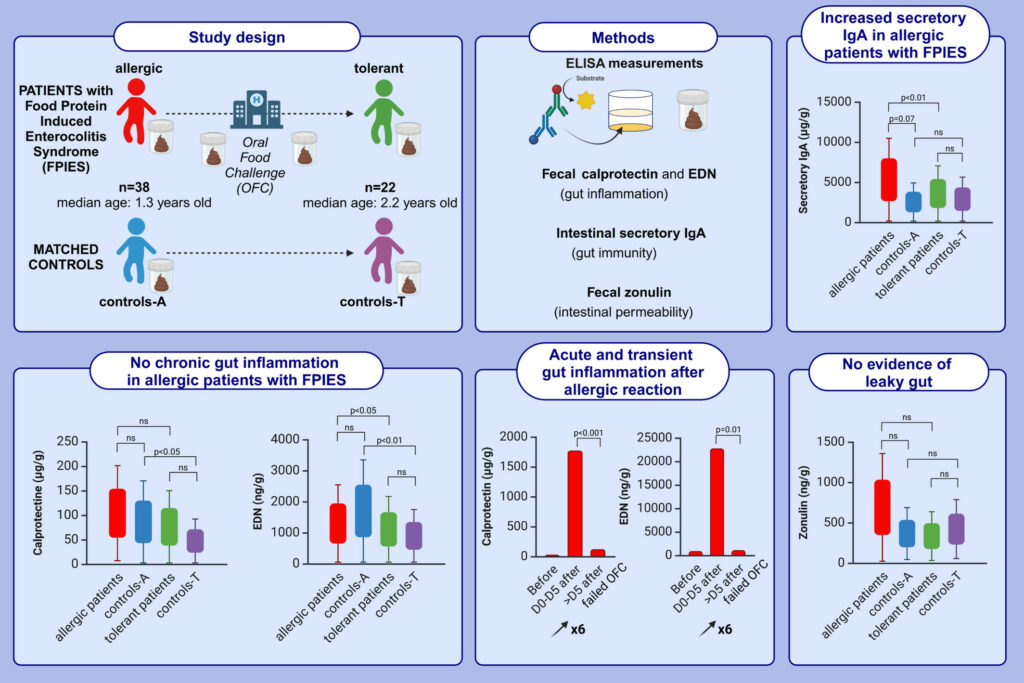Group I
- Roux AE, Langella P, Martin R. Overview on biotics development. Curr Opin Biotechnol. 2024 Feb 8;86:103073. doi: 10.1016/j.copbio.2024.103073. Review.
- Carbonne C, Chadi S, Kropp C, Molimard L, Chain F, Langella P, Martin R. Ligilactobacillus salivarius CNCM I-4866, a potential probiotic candidate, shows anti-inflammatory properties in vitro and in vivo. Front Microbiol. 2023 Nov 29;14:1270974. doi: 10.3389/fmicb. 2023.1270974.
- Martín R, Rios-Covian D, Huillet E, Auger S, Khazaal S, Bermúdez-Humarán LG, Sokol H, Chatel JM, Langella P. Faecalibacterium: a bacterial genus with promising human health applications. FEMS Microbiol Rev. 2023 Jul 5;47(4):fuad039. doi: 10.1093/femsre/fuad039. Review.
- Barone M, Ramayo-Caldas Y, Estellé J, Tambosco K, Chadi S, Maillard F, Gallopin M, Planchais J, Chain F, Kropp C, Rios-Covian D, Sokol H, Brigidi P, Langella P, Martín R. Gut barrier-microbiota imbalances in early life lead to higher sensitivity to inflammation in a murine model of C-section delivery. Microbiome. 2023 Jul 3;11(1):140. doi: 10.1186/s40168-023-01584-0. Erratum in: Microbiome. 2023 Aug 5;11(1):173. PMID: 37394428; PMCID: PMC10316582.
- Lenoir M, Martín R, Torres-Maravilla E, Chadi S, González-Dávila P, Sokol H, Langella P, Chain F, Bermúdez-Humarán LG. Butyrate mediates anti-inflammatory effects of Faecalibacterium prausnitzii in intestinal epithelial cells through Dact3. Gut Microbes. 2020 Nov 9;12(1):1-16. doi: 10.1080/19490976.2020.1826748. PMID: 33054518; PMCID: PMC7567499.
- Martín R, Chamignon C, Mhedbi-Hajri N, Chain F, Derrien M, Escribano-Vázquez U, Garault P, Cotillard A, Pham HP, Chervaux C, Bermúdez-Humarán LG, Smokvina T, Langella P. The potential probiotic Lactobacillus rhamnosus CNCM I-3690 strain protects the intestinal barrier by stimulating both mucus production and cytoprotective response. Sci Rep. 2019 Apr 1;9(1):5398. doi: 10.1038/s41598-019-41738-5. PMID: 30931953; PMCID: PMC6443702.
- Allain T, Chaouch S, Thomas M, Travers MA, Valle I, Langella P, Grellier P, Polack B, Florent I, Bermúdez-Humarán LG. Bile Salt Hydrolase Activities: A Novel Target to Screen Anti-Giardia Lactobacilli? Front Microbiol. 2018 Feb 8;9:89. doi: 10.3389/fmicb.2018.00089. PMID: 29472903; PMCID: PMC5809405.
- Motta JP, Bermúdez-Humarán LG, Deraison C, Martin L, Rolland C, Rousset P, Boue J, Dietrich G, Chapman K, Kharrat P, Vinel JP, Alric L, Mas E, Sallenave JM, Langella P, Vergnolle N. Food-grade bacteria expressing elafin protect against inflammation and restore colon homeostasis. Sci Transl Med. 2012 Oct 31;4(158):158ra144. doi: 10.1126/scitranslmed.3004212. PMID: 23115353.
Group II
- Ang Li Xuan A, Robert V, Hisatomi A, Hirasaki M, Maeno S, Ohkuma M, Sakamoto M, Chatel JM, Endo A. Faecalibacterium langellae sp. nov. isolated from human faeces. Int J Syst Evol Microbiol. 2025 Jun;75(6). doi:10.1099/ijsem.0.006804. PMID: 40459242.
- Mclellan P, Auger S, Goudiaby MT, Brot L, Benech N, Grill JP, Bourrier A, Mariat D, Mayeur C, Thomas M, Robert V, Kirchgesner J, Beaugerie L, Sokol H, Langella P, Seksik P, Chatel JM. Faecalibacterium Diversity in the Gut Microbiome of Crohn’s Disease Patients. United European Gastroenterol J. 2025 Apr 19. doi: 10.1002/ueg2.70023. Epub ahead of print. PMID: 40252217.
- Chollet L, Heumel S, Deruyter L, Bouilloux F, Delval L, Robert V, Gevaert MH, Pichavant M, Sencio V, Robil C, Wolowczuk I, Sokol H, Auger S, Douablin A, Langella P, Chatel JM, Grangette C, Trottein F. Faecalibacterium duncaniae as a novel next generation probiotic against influenza. Front Immunol. 2024 Mar 12;15:1347676. doi: 10.3389/fimmu.2024.1347676. PMID: 38590519; PMCID: PMC11000806.
- Martín R, Rios-Covian D, Huillet E, Auger S, Khazaal S, Bermúdez-Humarán LG, Sokol H, Chatel JM, Langella P. Faecalibacterium: a bacterial genus with promising human health applications. FEMS Microbiol Rev. 2023 Jul 5;47(4):fuad039. doi: 10.1093/femsre/fuad039. PMID: 37451743; PMCID: PMC10410495.
- Botin T, Ramirez-Chamorro L, Vidic J, Langella P, Martin-Verstraete I, Chatel JM, Auger S. The Tolerance of Gut Commensal Faecalibacterium to Oxidative Stress Is Strain Dependent and Relies on Detoxifying Enzymes. Appl Environ Microbiol. 2023 Jul 26;89(7):e0060623. doi: 10.1128/aem.00606-23. Epub 2023 Jun 29. PMID: 37382539; PMCID: PMC10370306.
- Spatz M, Da Costa G, Ventin-Holmberg R, Planchais J, Michaudel C, Wang Y, Danne C, Lapiere A, Michel ML, Kolho KL, Langella P, Sokol H, Richard ML. Antibiotic treatment using amoxicillin-clavulanic acid impairs gut mycobiota development through modification of the bacterial ecosystem. Microbiome. 2023 Apr 10;11(1):73. doi: 10.1186/s40168-023-01516-y. PMID: 37032359; PMCID: PMC10084673.
- Auger S, Kropp C, Borras-Nogues E, Chanput W, Andre-Leroux G, Gitton-Quent O, Benevides L, Breyner N, Azevedo V, Langella P, Chatel JM. Intraspecific Diversity of Microbial Anti-Inflammatory Molecule (MAM) from Faecalibacterium prausnitzii. Int J Mol Sci. 2022 Feb 1;23(3):1705. doi: 10.3390/ijms23031705. PMID: 35163630; PMCID: PMC8836110.
Group III
(major publications for the last 5 years, 2021-2025)
Dupraz L, Orianne G., Da Costa G., Gauthier R., Blondeau A., Boinet M., Creusot L., Magniez A., Chollet L., Rolhion N., Danne C., Dvorák Z., Seksik P., Sokol H., Michel ML. bioRxiv 2025.03.20.644103; doi: https://doi.org/10.1101/2025.03.20.644103
Michaudel C, Danne C, Agus A, Magniez A, Aucouturier A, Spatz M, Lefevre A, Kirchgesner J, Rolhion N, Wang Y, Lavelle A, Galbert C, Da Costa G, Poirier M, Lapière A, Planchais J, Nádvorník P, Illes P, Oeuvray C, Creusot L, Michel ML, Benech N, Bourrier A, Nion-Larmurier I, Landman C, Richard ML, Emond P, Seksik P, Beaugerie L, Arguello RR, Moulin D, Mani S, Dvorák Z, Bermúdez-Humarán LG, Langella P, Sokol H., Gut. 2023 Jul;72(7):1296-1307. doi: 10.1136/gutjnl-2022-327337.
Danne C, Michaudel C, Skerniskyte J, Planchais J, Magniez A, Agus A, Michel ML, Lamas B, Da Costa G, Spatz M, Oeuvray C, Galbert C, Poirier M, Wang Y, Lapière A, Rolhion N, Ledent T, Pionneau C, Chardonnet S, Bellvert F, Cahoreau E, Rocher A, Arguello RR, Peyssonnaux C, Louis S, Richard ML, Langella P, El-Benna J, Marteyn B, Sokol H., Gut. 2023 Jun;72(6):1081-1092. doi: 10.1136/gutjnl-2022-326917.
Dupraz L, Magniez A, Rolhion N, Richard ML, Da Costa G, Touch S, Mayeur C, Planchais J, Agus A, Danne C, Michaudel C, Spatz M, Trottein F, Langella P, Sokol H, Michel ML., Cell Rep. 2021 Jul 6;36(1):109332. doi: 10.1016/j.celrep.2021.109332
Group IV
- Bedu-Ferrari C, Biscarrat P, Pepke F, Vati S, Chaudemanche C, Castelli F, Chollet C, Rué O, Hennequet-Antier C, Langella P, Cherbuy C. In-depth characterization of a selection of gut commensal bacteria reveals their functional capacities to metabolize dietary carbohydrates with prebiotic potential. mSystems. 2024 Apr 16;9(4):e0140123. doi: 10.1128/msystems.01401-23
- Verstraeten S, Layec S, Auger S, Juste C, Henry C, Charif S, Jaszczyszyn Y, Sokol H, Beney L, Langella P, Thomas M, Huillet E. Faecalibacterium duncaniae A2-165 regulates the expression of butyrate synthesis, ferrous iron uptake, and stress-response genes based on acetate consumption. Sci Rep. 2024 Jan 10;14(1):987. doi: 10.1038/s41598-023-51059-3
- Biscarrat P, Bedu-Ferrari C, Langella P, Cherbuy C: Pulses: A way to encourage sustainable fiber consumption. Trends in Food Science & Technology 2024 ; 143:104281. doi.org/10.1016/j.tifs.2023.104281
- Saint-Criq V, Lugo-Villarino G, Thomas M. Dysbiosis, malnutrition and enhanced gut-lung axis contribute to age-related respiratory diseases. Ageing Res Rev. 2021 Mar;66:101235. doi: 10.1016/j.arr.2020.101235
Commensal and Probiotic Bacteria Engineering workshop
- Levit R, Cortes-Perez NG, de Moreno de Leblanc A, Loiseau J, Aucouturier A, Langella P, LeBlanc JG, Bermúdez-Humarán LG. Use of genetically modified lactic acid bacteria and bifidobacteria as live delivery vectors for human and animal health. Gut Microbes. 2022 Jan-Dec;14(1):2110821. doi: 10.1080/19490976.2022.2110821. PMID: 35960855; PMCID: PMC9377234.
- Garza-Morales R, Rendon BE, Malik MT, Garza-Cabrales JE, Aucouturier A, Bermúdez-Humarán LG, McMasters KM, McNally LR, Gomez-Gutierrez JG. Targeting Melanoma Hypoxia with the Food-Grade Lactic Acid Bacterium <i>Lactococcus Lactis</i>. Cancers (Basel). 2020 Feb 13;12(2):438. doi: 10.3390/cancers12020438. PMID: 32069844; PMCID: PMC7072195.
- Jacouton E, Torres Maravilla E, Boucard AS, Pouderous N, Pessoa Vilela AP, Naas I, Chain F, Azevedo V, Langella P, Bermúdez-Humarán LG. Anti-tumoral Effects of Recombinant Lactococcus lactis Strain Secreting IL-17A Cytokine. Front Microbiol. 2019 Jan 23;9:3355. doi: 10.3389/fmicb.2018.03355. PMID: 30728820; PMCID: PMC6351453.
- Bermúdez-Humarán LG, Langella P. Live bacterial biotherapeutics in the clinic. Nat Biotechnol. 2018 Sep 6;36(9):816-818. doi: 10.1038/nbt.4248. PMID: 30188536.
- Bermúdez-Humarán LG, Langella P. Use of Traditional and Genetically Modified Probiotics in Human Health: What Does the Future Hold? Microbiol Spectr. 2017 Sep;5(5). doi: 10.1128/microbiolspec.BAD-0016-2016. PMID: 28959936.
Isolation and characterization of commensal and probiotic anaerobic bacteria workshop
- Barone M, Ramayo-Caldas Y, Estellé J, Tambosco K, Chadi S, Maillard F, Gallopin M, Planchais J, Chain F, Kropp C, Rios-Covian D, Sokol H, Brigidi P, Langella P, Martín R. Gut barrier-microbiota imbalances in early life lead to higher sensitivity to inflammation in a murine model of C-section delivery. Microbiome. 2023 Jul 3;11(1):140. doi: 10.1186/s40168-023-01584-0. Erratum in: Microbiome. 2023 Aug 5;11(1):173. PMID: 37394428; PMCID: PMC10316582.
- Description of a Newly Isolated Blautia faecis Strain and Its Benefit in Mouse Models of Post-Influenza Secondary Enteric and Pulmonary Infections. Verstraeten S, Sencio V, Raise A, Huillet E, Layec S, Deruyter L, Heumel S, Auger S, Robert V, Langella P, Beney L, Trottein F, Thomas M. Nutrients. 2022 Apr 1;14(7):1478. doi: 10.3390/nu14071478. PMID: 35406091 Free PMC article.
- Functional Characterization of Novel Faecalibacterium prausnitzii Strains Isolated from Healthy Volunteers: A Step Forward in the Use of F. prausnitzii as a Next-Generation Probiotic.
- Martín R, Miquel S, Benevides L, Bridonneau C, Robert V, Hudault S, Chain F, Berteau O, Azevedo V, Chatel JM, Sokol H, Bermúdez-Humarán LG, Thomas M, Langella P. Front Microbiol. 2017 Jun 30;8:1226. doi: 10.3389/fmicb.2017.01226. eCollection 2017. PMID: 28713353 Free PMC article.
All the team publications are available in the PROBIHOTE-MICALIS HAL collection.
